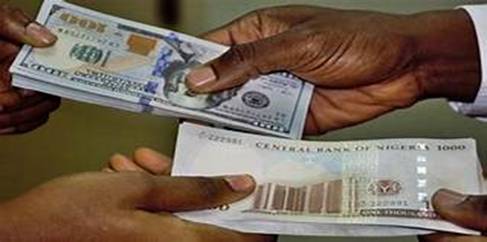By Our Correspondent
Nigeria’s currency has continued to experience free-fall against the US dollar two months after the Central Bank of Nigeria’s floating of naira, a decision that has further worsened the woes of Africa’s largest economy. From 14 June, when CBN liberalized the forex market, till date, the country’s currency has continued to slump against the dollar from N750/$1 at the parallel market known as the black market to N950/$1 on Monday, 14 August 2023.
The situation became more worrisome as the gap between the official window and the parallel market widened with a differential of N181, defeating the essence of CBN’s floating of the naira.
The ongoing probe of the apex bank by a special investigator, Jim Obazee, appointed by President Bola Ahmed Tinubu, may have worsened the depreciation of the naira, according to experts familiar with the sector.
Jim Obazee is the former Executive Secretary and Chief Executive Officer of the Financial Reporting Council of Nigeria. Jim Osayande Obazee was saddled with the responsibilities of overseeing the setting, monitoring and enforcing financial reporting standards and Corporate Governance practices in both public and private sectors of the Nigerian economy. Obazee was also linked with the implementation of the controversial Corporate Governance Code 2016 that made Pastor Enoch Adeboye, the General Overseer of the Redeemed Christian Church of God (RCCG), to relinquish his position and announce Joseph Obayemi as his successor. The code limits the tenure for heads of religious groups and civil rights organisations to 20 years. Obazee pushed for the implementation, despite former President Muhammadu Buhari’s objections.

The financial standards expert is also responsible for harmonizing the activities of relevant professional and regulatory bodies in Nigeria. Obazee holds an MSc degree in Accounting. He is a Fellow of the Institute of Chartered Accountants of Nigeria and a member of American Accounting Association. This is not the first time Obazee has conducted investigations on the Central Bank of Nigeria (CBN). He had also investigated the Bank of Industry (BOI); Zenith Bank of Nigeria Plc; Guaranty Trust Bank Plc and Access Bank Plc.
Details from the CBN’s seven years’ consolidated financial statements released weeks ago showed a combined indebtedness of $7.5 billion to JP Morgan and Goldman Sachs, with a foreign reserve of $33.88 billion. This was part of the reason the forex crisis lingered, Professor Uche Uwaleke, an economist confirmed.
The Acting CBN governor, Folashodun Shonubi, blamed undocumented forex remittances and the unregulated parallel market for the woes in the sector. Consequently, the country’s economy, which heavily depended on fuel, continued to bleed from the forex crisis. Even the oil marketers dropped a hint of a further hike in petrol pump prices in reflection of the soaring price of the dollar. A situation like that would affect the masses still struggling to cope with July’s fuel increment occasioned by petrol subsidy removal since June.
Speaking with journalists on Monday, 14 August 2023, the President of the Association of Bureau De Change Operators of Nigeria (ABCON), Aminu Gwadabe said its members cannot be blamed for the ongoing crisis in the forex market. He blamed the prevalence of unlicensed online platforms operating in different jurisdictions without standardized regulations capturing Diaspora remittances and denying the official market. According to him, the recent happenings in the sector had further brought to the fore the need for CBN to have its members pick up agents of Diaspora remittances to block loopholes and stymie the forex crisis. “The revelation of the apex bank on diversion of Diaspora remittance has vindicated our long-time advocacy to make BDCs pick up agents of Diaspora remittances to block the loopholes that the CBN is bringing to the forefront. To make Diaspora remittance inflow into the official market, the BDCs should be made the sole agents of Diaspora remittances to break the monopoly of the agency of the international money transfer operators.

“What we have now is the prevalence of unlicensed online application platforms and fintechs that operate in different jurisdictions without standardized regulation capturing Diaspora remittances and denying the official market”, he emphasized.
Also, Idakolo Gbolade, Chief Executive Officer of SD & D Capital Management, said the continued naira decline could be attributed to the reduction of forex inflows into the economy, resulting in foreign currency scarcity. He said major oil companies, establishments and commercial banks contributed significantly to the forex crisis by encouraging increased scarcity for their benefits and profitability. Gbolade urged the government to urgently pursue policies that halt further deterioration in the sector.
“The naira’s continuous decline can be mainly attributed to reduced forex inflows into the economy, which has led to the scarcity of foreign currencies and has put pressure on existing reserves. These pressures, combined with our debt obligations, have led to reduced foreign reserves. The cooperation of major forex revenue contributors like the oil majors and commercial banks are also suspect because they encouraged increased arbitrage in the foreign exchange for their benefit and profitability. The federal government needs to critically examine the policy and ensure that the CBN monitors the implementation of the policy.”




